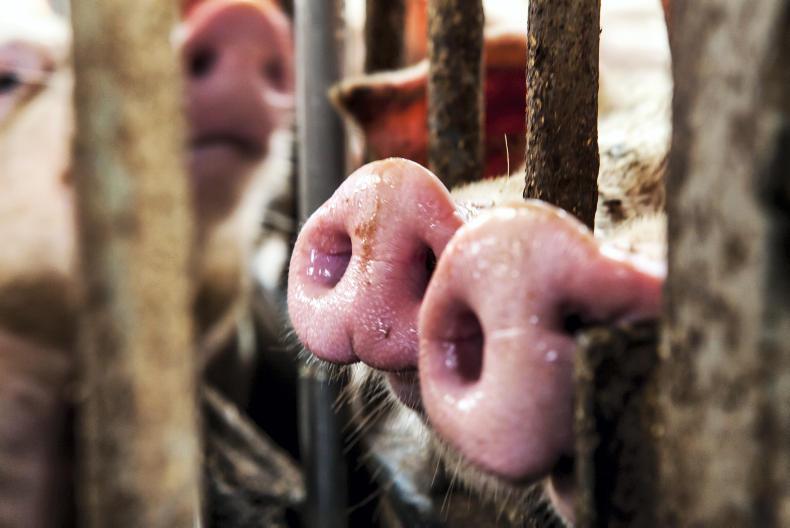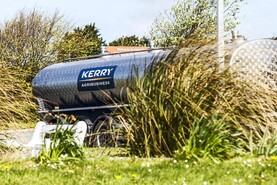The Department of Agriculture has urged for vigilance on the part of all pig owners following a case of African Swine Fever (ASF) in Germany for the first time.
ASF was confirmed on Thursday in the eastern area of Germany within a few kilometres of the Polish border. It is highly fatal for pigs and wild boar, but does not affect humans and poses no food safety risk.
To date, the disease has only been detected in a single wild boar, with no reports in domestic pigs.
No live pigs have been imported from Germany into Ireland this year, the Department has confirmed.
Biosecurity
All Irish pig owners have been asked to ensure there are robust biosecurity measures on their farms, the pigs have no access to food waste and that they do not come into contact with equipment, including clothing, vehicles, footwear or equipment originating in ASF affected areas of the world.
All travellers are also reminded to avoid bringing back any pork or pork products from ASF-affected areas.
The World Organisation of Animal Health (OIE) reported that ASF currently affects more than 50 countries in Europe, Asia and Africa, including 12 EU member states in 2020.
Poland
It first entered Poland in 2014 and has been spreading in the wild boar population in the western part of the country that borders Germany since November 2019.
“Wild boar have played a major role in the spread of the disease in mainland Europe through their natural movements and interactions,” the Department explained.
“Ireland does not have a sustainable wild boar population, but the virus can also be spread through other ways including contact with infected live pigs, contaminated clothing, footwear, vehicles and equipment and the consumption of infected food waste by pigs.”
Read more
African swine fever vaccine ‘very encouraging’
African swine fever: what is it and what can we do?
The Department of Agriculture has urged for vigilance on the part of all pig owners following a case of African Swine Fever (ASF) in Germany for the first time.
ASF was confirmed on Thursday in the eastern area of Germany within a few kilometres of the Polish border. It is highly fatal for pigs and wild boar, but does not affect humans and poses no food safety risk.
To date, the disease has only been detected in a single wild boar, with no reports in domestic pigs.
No live pigs have been imported from Germany into Ireland this year, the Department has confirmed.
Biosecurity
All Irish pig owners have been asked to ensure there are robust biosecurity measures on their farms, the pigs have no access to food waste and that they do not come into contact with equipment, including clothing, vehicles, footwear or equipment originating in ASF affected areas of the world.
All travellers are also reminded to avoid bringing back any pork or pork products from ASF-affected areas.
The World Organisation of Animal Health (OIE) reported that ASF currently affects more than 50 countries in Europe, Asia and Africa, including 12 EU member states in 2020.
Poland
It first entered Poland in 2014 and has been spreading in the wild boar population in the western part of the country that borders Germany since November 2019.
“Wild boar have played a major role in the spread of the disease in mainland Europe through their natural movements and interactions,” the Department explained.
“Ireland does not have a sustainable wild boar population, but the virus can also be spread through other ways including contact with infected live pigs, contaminated clothing, footwear, vehicles and equipment and the consumption of infected food waste by pigs.”
Read more
African swine fever vaccine ‘very encouraging’
African swine fever: what is it and what can we do?






 This is a subscriber-only article
This is a subscriber-only article










SHARING OPTIONS: